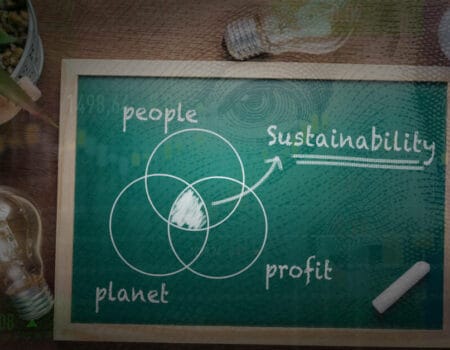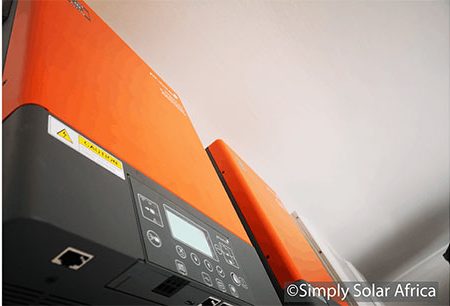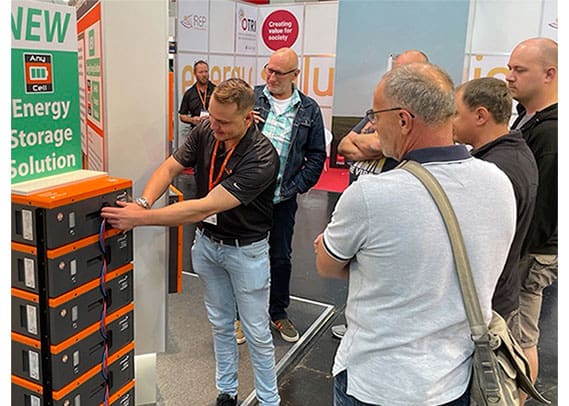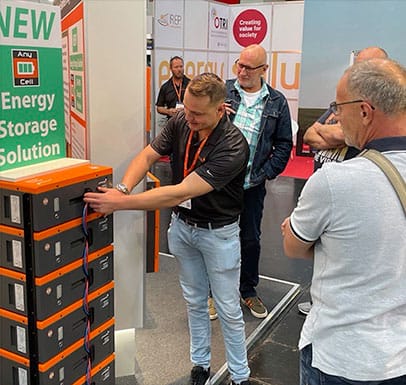
With the use of solar power becoming more widespread, it is helpful to know how those dark, glassy panels produce all that energy.
What are Solar Panels Made Of?
Solar panels are made of Photovoltaic (PV) Cells that capture sunlight and convert it into electricity.
Anatomy of a PV Cell
Metal Conductor Strips – Help conduct the flow of electrons through the panel.
Anti-reflective Coating – Ensures that the photons are absorbed by the silicon later and not reflected away.
p-n Junction – Generates electric current in the PV cell through a process known as the “photovoltaic effect.”
Silicon Layers – The alternating sides of the silicon wafer are doped with phosphorus and boron to create positive and negative charges.
Typical Grid-Tied Residential Solar System Example:
Flow of Electricity From the Solar Panels with Electric Utility and AC Appliances
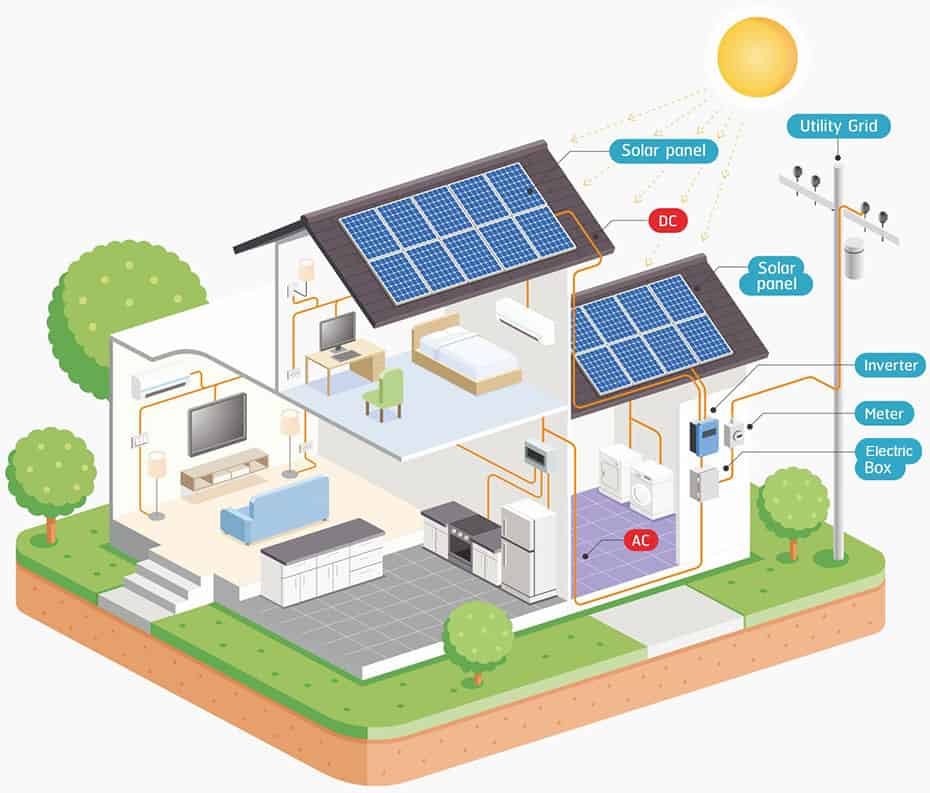
Solar radiation -> cell -> module -> string -> PV generation
1. Solar cell
A solar cell consists of a semiconductor that is typically silicon. When foreign atoms are introduced (a process known as doping), a p-n junction is formed in the cell that puts in place an electrical field in the crystal.
2. Photons from the sun’s rays
Penetrating photons from the sun’s rays are absorbed by the solar cells and generate free electron-hole pairs. The particles are separated from the field of the space charge region and moved by the electrical field to the outer contacts, which transport the generated electrons through the external current circuit.
3. Solar Panel or module
When a load is connected to the contacts of the solar cell, it can then draw the generated electrical energy. A solar panel or module is a combination of many solar cells to produce a usable voltage. These cells in the modules are mechanically sealed for protection against external environmental factors. This generated power is ready to use if direct current (DC) appliances are connected or will need to be converted to alternating current (AC) for the most commonly found AC appliances.
4. PV string
A PV string is basically a series-connected set of solar modules. A solar combiner box is usually used to combine several DC inputs from the solar array. If required, an inverter converts these DC inputs to AC, which most commonly provides usable power to grid-tied AC lights and AC appliances. The output of the inverter is typically wired to an AC distribution panel, where it gets distributed to supply electricity to a residential building, a commercial building, or designated equipment.
5a. On-grid solar system
In an on-grid solar system, when allowed, excess energy, produced by the solar panels, can be sent back to the electric grid or for those who have invested in a storage solution, the solar panels can also feed the battery bank to help avoid the highest utility bill charges from the utility, and possibly avoid power outages when the utility is interrupted.
5b. Off-grid solar system
In an off-grid solar system, excess energy is stored in a battery for later use or in some cases can be hooked to something like a DC water pump that has no battery storage and is designed to simply run when the sun is shining. If AC appliances are used at the installation site, then an inverter will be required to convert the DC generated electricity from the solar panels to power the AC loads.
Solar Energy Applications and Benefits

- It is Renewable, Clean Energy
- Energy Independence
- Offers Energy Access in Remote Locations with No Utility Power Available
- Environment-friendly, Reduce Carbon Footprint
- Save Money on Energy Bills and Protection from Future Increased Rates
- Increase Property Value
- Reduction of Fossil Fuel Use and Dependence
- Contribute to Sustainable Development
- When Designed and Installed Properly Systems are very Maintenance-Free in Nature (No Moving Parts)
- Current High Quality Solar Panels Offer a Minimum 25 Year Warranty, with Expectations to Produce Energy Well Beyond the Warranty Period
- Smart Investment
Interested in Going Solar?
Innovations in solar technology have made solar power a very cost-effective source of generating electricity.
This is proven technology. For decades photovoltaic modules have offered a reliable source of generated electricity from the sun, for various applications impacting people around the world. From residential grid-tied projects, to MW solar farms, to a tiny home or RV. From industrial monitoring applications to remote villages where communities of people live in the dark once the sun goes down, solar energy offers a proven answer. Anywhere, there is sun and a need for autonomous power, a well-designed solar energy system can provide the solution.
If you want to take advantage of what solar energy has to offer, a qualified solar expert can help you find the best system for your energy needs. Look at reviews and interview qualified companies. It pays to take time to select the right professional to help with design, equipment selection, and installation. There can be different rules to be aware of in your area, like utility fees or specific parameters to be clear about that may impact return on investment calculations or timing to move forward. Experience can make all the difference to optimize success with a solar installation investment. Regional experts can help define the path for success, to help navigate the intricacy of topics like required local certifications, fire safety mandates, local permitting mandates, weather considerations, and general safety to name a few.
Phocos is a global company. For over two decades, we have serviced the solar community, offering products like Any-Grid hybrid inverters, remote monitoring, solar charge controllers (MPPT and PWM), and DC refrigerators, to complement solar installations. We are your Off-Grid and Any-Grid partner. To find a list of our distribution partners or to contact our sales team, click here.
References:
https://www.pbs.org/wgbh/nova/solar/insi-nf.html
https://energyeducation.ca/encyclopedia/P-n_junction
https://solect.com/the-science-of-solar-how-solar-panels-work/
https://environmentamerica.org/feature/ame/true-value-solar
https://www.ergon.com.au/network/smarter-energy/solar-power/benefits-of-solar-power
https://www.certainteed.com/solar/solar-101-abcs-solar-power/

